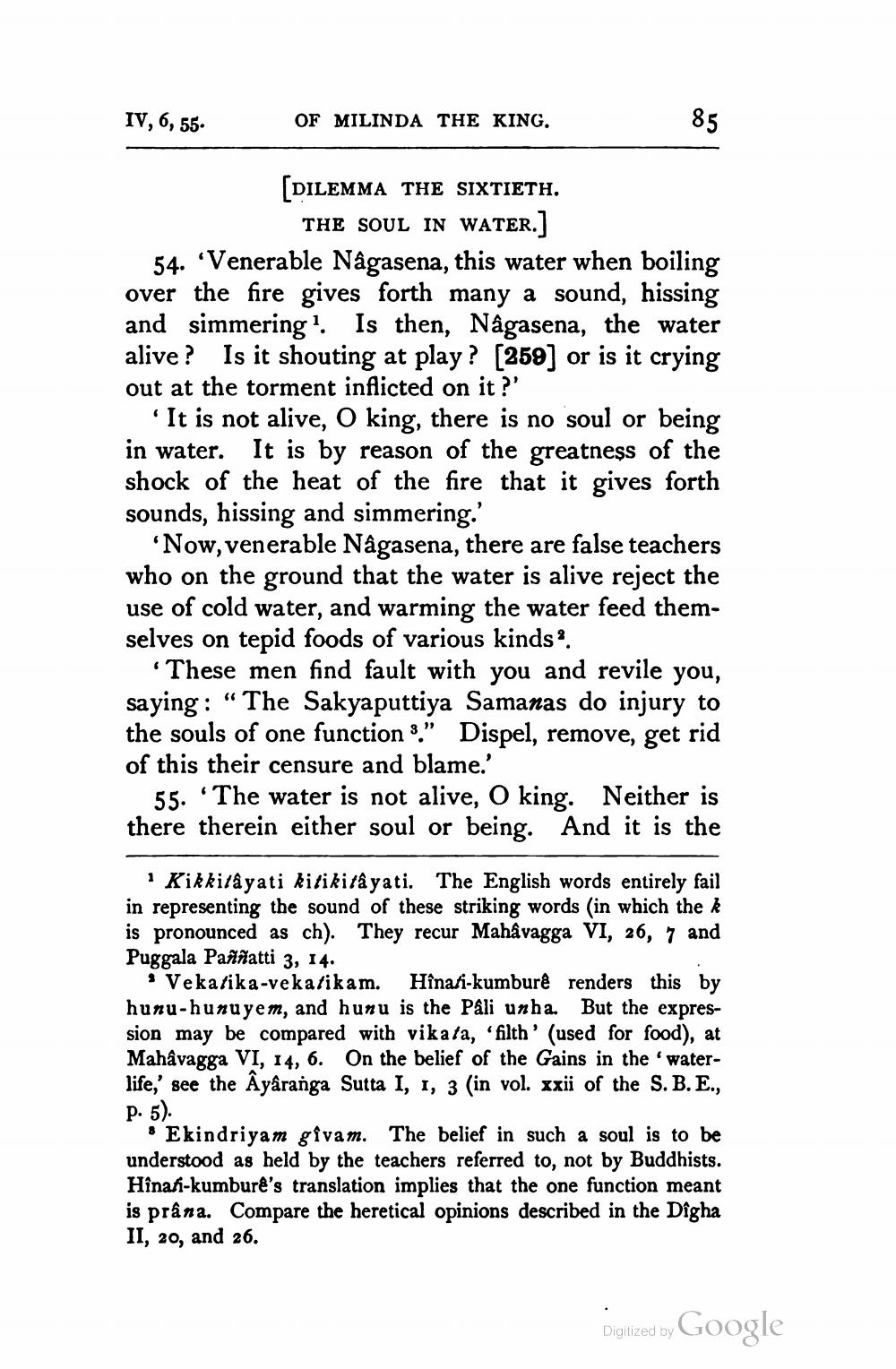________________
IV, 6, 55.
OF MILINDA THE KING.
[DILEMMA THE SIXTIETH.
THE SOUL IN WATER.] 54. 'Venerable Nâgasena, this water when boiling over the fire gives forth many a sound, hissing and simmering? Is then, Nâgasena, the water alive? Is it shouting at play? [259] or is it crying out at the torment inflicted on it ?'
* It is not alive, O king, there is no soul or being in water. It is by reason of the greatness of the shock of the heat of the fire that it gives forth sounds, hissing and simmering.'
'Now, venerable Nâgasena, there are false teachers who on the ground that the water is alive reject the use of cold water, and warming the water feed themselves on tepid foods of various kinds.
*These men find fault with you and revile you, saying: “The Sakyaputtiya Samanas do injury to the souls of one functions." Dispel, remove, get rid of this their censure and blame.'
55. 'The water is not alive, O king. Neither is there therein either soul or being. And it is the
Kikkita yati kitikitâ yati. The English words entirely fail in representing the sound of these striking words (in which the k is pronounced as ch). They recur Mahâvagga VI, 26, 7 and Puggala Pannatti 3, 14.
Vekarika-veka tikam. Hînati-kumburê renders this by hunu-hunu yem, and hunu is the Pali unha. But the expression may be compared with vikata, 'filth' (used for food), at Mahavagga VI, 14, 6. On the belief of the Gains in the 'waterlife,' see the Ayâranga Sutta I, 1, 3 (in vol. xxii of the S. B. E., P. 5).
* Ekindriyam givam. The belief in such a soul is to be understood as held by the teachers referred to, not by Buddhists. Hînafi-kumburê's translation implies that the one function meant is prâna. Compare the heretical opinions described in the Digha II, 20, and 26.
Digitized by Google




